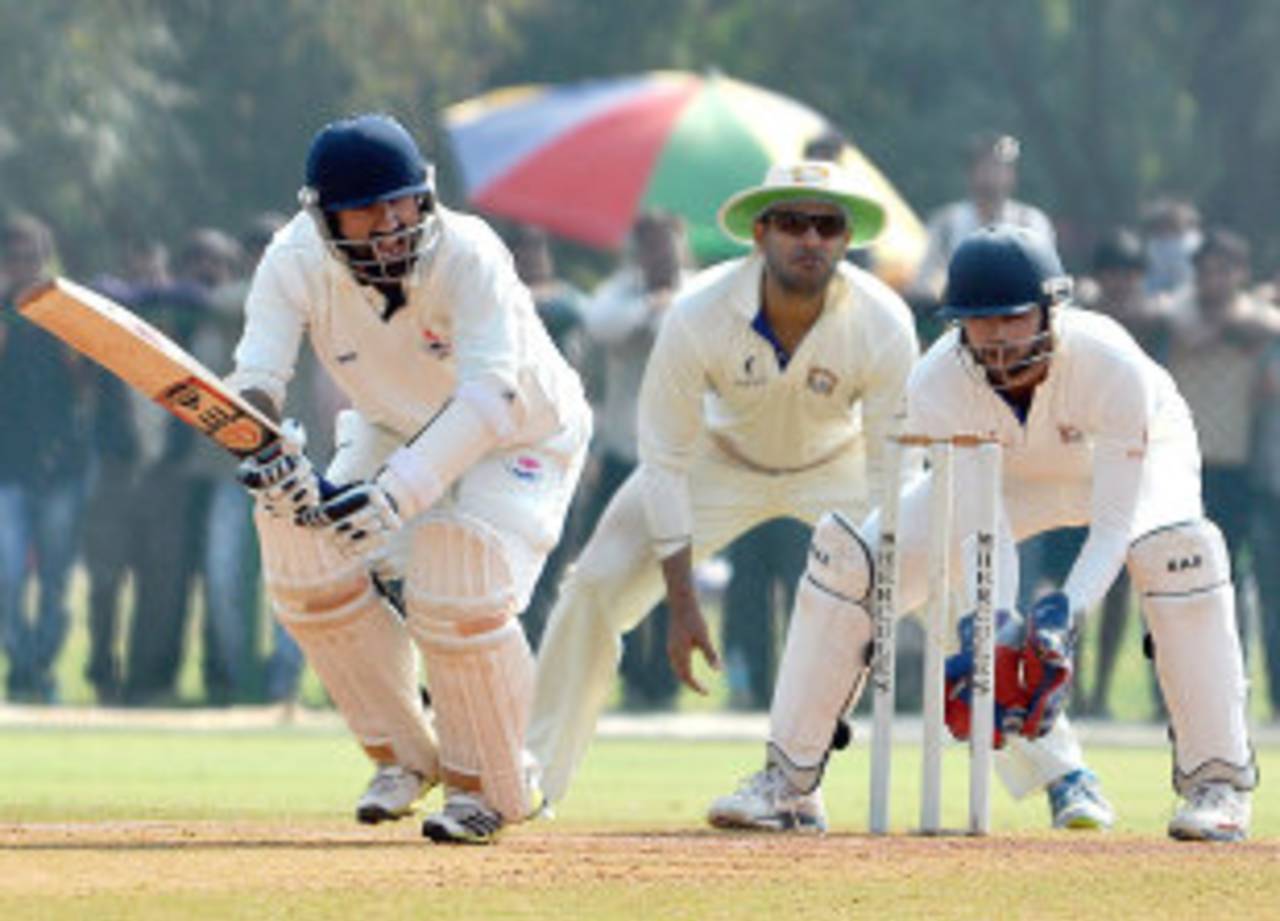In the 1990s, when political unrest in the region was at a peak, the Jammu & Kashmir Cricket Association's only ground in Srinagar was off limits to its cricketers because paramilitary forces were using it as a camp site. Cricket survived and the team showed encouraging signs by qualifying for the Ranji knockouts, for the first time in their history, in 2001-02 - the same year they got their ground back - before retreating to anonymity again.
It took the J&K team another 12 years to catch the updraught again. This Ranji Trophy season they won four matches in the league stage, leaped over late hurdles to finish second in Group C, and although they lost to Punjab in a closely contested quarter-final, they have been promoted to play in the top division next year. For a team with limited infrastructure - one ground, no winter nets - and an association mired in fund-mishandling controversy, it was a remarkable jump from their bottom-three finish last season.
Some of it had to do with
Parvez Rasool's rise to the national team. Seamer
Samiullah Beigh, a former captain himself, says Rasool's selection last year was a watershed moment.
"It has created lot of hope. There was a time we knew we would never reach close to the India squad from Kashmir. But things have changed. They picked an India A side last year which was solely based on domestic performance. We knew this season if we do well, we could also make it to India A."
A lot of the success, however, was down to concrete changes in their preparation ahead of this season. "This year for the first time, we conducted trial matches in the summer. In my view, they were the turning points," says Beigh. "Everybody got a fair chance and only those who were in peak form got selected for Ranji. That was the difference."
The trial matches were two-day contests between five teams comprising cricketers from the state. Only Rasool, who was with the India A team, was not available. Over a month, it gave the head coach,
Abdul Qayoom, a chance to identify the 15 who were in the best shape for the season. (Abid Nabi, one of the regulars of past seasons, missed out.) Eight days of competitive cricket was a change from the club-level games and pre-season camp most J&K cricketers were accustomed to. It also gave Qayoom an opportunity to spend time with each player and assess them up close.
Qayoom, in his first season as the head coach, says that in the past, coaches were assigned to the teams only a few days in advance.
"[Bishan] Bedi brought a revolution. He instilled belief in the players that they too could win. Before that, the players used to just turn up"
Abdul Qayoom, J&K head coach, on his predecessor
"You hardly got time to know the team. And there was the policy of appointing different people for different formats. That meant there was no continuity. Players were dropped after only a couple of bad games.
"This year, I categorically asked for a free hand with the team. You will see that I stuck to almost the same XI throughout the season. Changes were made only when the conditions demanded it, like a spinner for a seamer on a turning pitch. We also kept an eye on who was doing well in other places, like we brought in Umar Nazir, who did well in the Under-25s, and Shubham Khajuria, the U-19 batsman, to increase the squad size to 17. But we didn't release anyone."
The trial matches were not the only competitive cricket the team had this year. In summer, during high cricket season in the valley, an IPL-style T20 league - the Jammu & Kashmir Corporate League - was organised, featuring 12 corporate-owned teams that played 70 games on matting pitches in two venues. Teams were bought after a bidding process, mentors were allotted, and each team brought in one player from outside the state. The professional approach was a big improvement over the club-level competition the players previously participated in during summer months.
The JKCA also arranged for the team to participate in a three-day cricket tournament in Pune where there were teams from Hyderabad, Baroda, Maharashtra and Gujarat. The J&K team beat Gujarat by nine wickets in the final to seal the title. Qayoom says that after years of participating for the sake of it, the success in Pune helped the team believe they could win.
The seeds of change, though, were sown in 2011-12 when Bishan Bedi was brought in as the head coach. The partnership didn't last its full term - Bedi left two years into his three-year contract period after a tug of war with administration and a section of players - but the wheels had been set in motion.
"Bedi brought a revolution," says Qayoom. "He instilled belief in the players that they too could win. Before that, the players used to just turn up. I was his assistant when he was the coach, but his words carried much more weight. This year, I tried to propagate the same mentality. We believed from the start that we could win the Ranji Trophy."
Next year the team's mettle will be tested against tougher opposition. "We need to prepare well and work hard," Rasool said after the
quarter-final exit. Qayoom has plans in the interim for more cricket for the state in the summer months: "I want to bring teams like Air India and ONGC that have a number of national players to Kashmir. That would help local cricket."
Devashish Fuloria is a sub-editor at ESPNcricinfo
